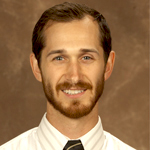Phil Valko has been named director of sustainability at Washington University in St. Louis, announced Steven P. Hoffner, associate vice chancellor for operations.
The director of sustainability is responsible for providing leadership, vision and strategy to advance WUSTL’s sustainability efforts.

Valko, a WUSTL Arts & Sciences alumnus, previously was the active living program manager for Trailnet, an organization that promotes walking, bicycling, hiking and conservation events throughout the St. Louis region.
“I am delighted that Phil has accepted our offer to return to Washington University as a member of our administration,” Hoffner says.
“Phil is an excellent collaborator and leader who has demonstrated a steadfast commitment to sustainability efforts, and he brings extensive experience working within the university and also with the St. Louis community to this role,” Hoffner says.
As director of sustainability, Valko will work with senior administrators, faculty, staff and students to incorporate and implement sustainable practices into the university’s operational procedures, resource management and strategic planning.
Valko also will provide leadership and support for the university’s current sustainability initiatives and programs.
“Washington University has made incredible strides in the past 10 years and is positioned to make many more in the years ahead,” Valko says. “I am thrilled to join the Washington University team and look forward to working with students, faculty, staff and administrators to ensure that the university is a good global steward and a leader in sustainability.”
Valko — who earned a bachelor’s degree in biology and environmental science, both in Arts & Sciences, from WUSTL in 2003 — had served as active living program manager for Trailnet since 2007.
In that role, Valko’s accomplishments include coordinating the development of Trailnet’s Healthy, Active & Vibrant Communities Initiative, which is being replicated in seven communities throughout Missouri; serving as lead author for the Healthy, Active & Vibrant Community Toolkit; authoring a peer-reviewed journal article with Ross Brownson, PhD, WUSTL professor of public health; and partnering with local municipalities to pass “Complete Streets” policies, which ensure that roads will be designed to support walking, biking and public transit.
In addition, for the past six years, Valko was executive director of the Urban Studio. The Urban Studio, founded by Valko in 2005, offered concerts, classes and programs for all ages in north St. Louis and included the Urban Studio Cafe, a gathering place for the community. Valko was awarded a $30,000 YouthBridge Social Entrepreneurship and Innovation Competition grant from WUSTL’s Skandalaris Center for Entrepreneurial Studies to launch the cafe in 2009.
Valko also has served as board president for the Healthy Youth Partnership (HYP) since 2009. HYP is a collaborative of more than 80 organizations that works to eliminate youth obesity in the St. Louis region.
From 2005-07, Valko served as data management coordinator for the Regional Housing and Community Development Alliance, a nonprofit developer. From 2003-07, he was a certified team-building facilitator for the YMCA Teams Challenge course, providing team-building facilitation for more than 20 groups.
In addition to his academic work at WUSTL, Valko performed research on global climate change at the University of California, Davis, from 2003-04.
From 2001-03, while a student at WUSTL, Valko co-founded and directed the Wilderness Project, a student-run, weeklong WUSTL pre-orientation program designed to challenge incoming freshmen to become effective socially and environmentally conscious leaders. The program continues today. For more information about the Wilderness Project, visit outing.wustl.edu/wp/index.html.
Valko currently resides in Old North St. Louis, where he is rehabbing a 150-year-old historic home with many green features, including recycled blue jeans insulation and reclaimed materials.